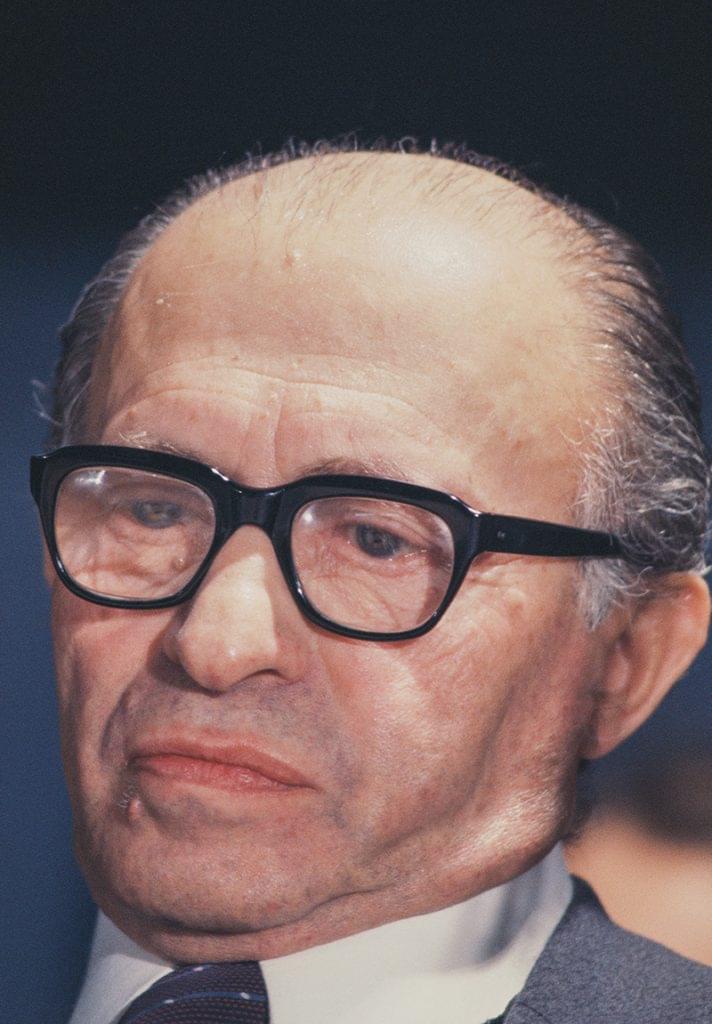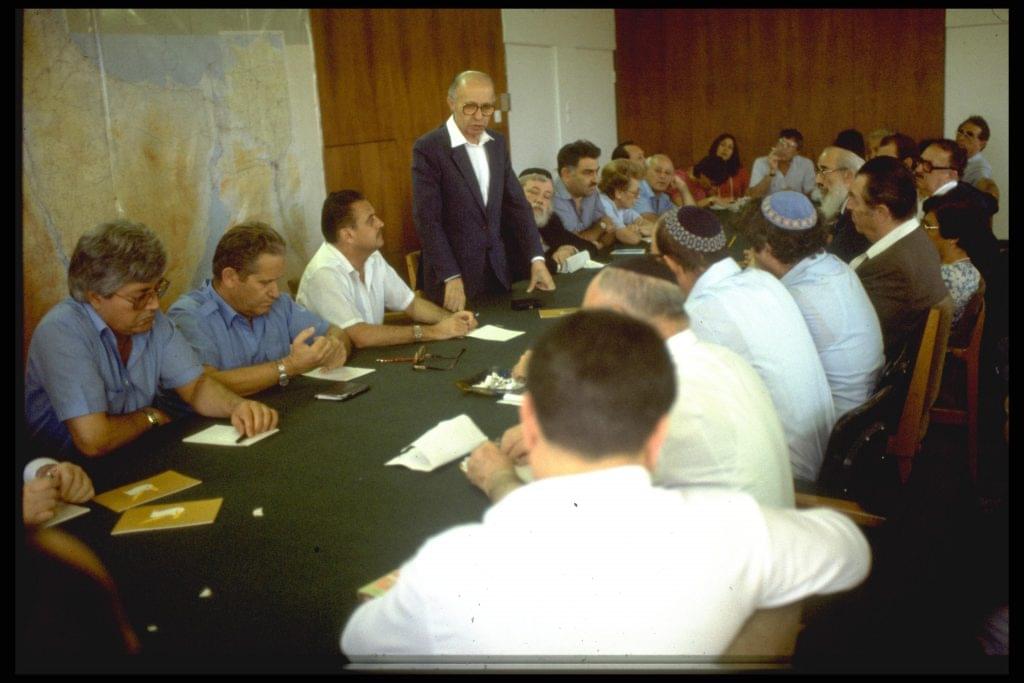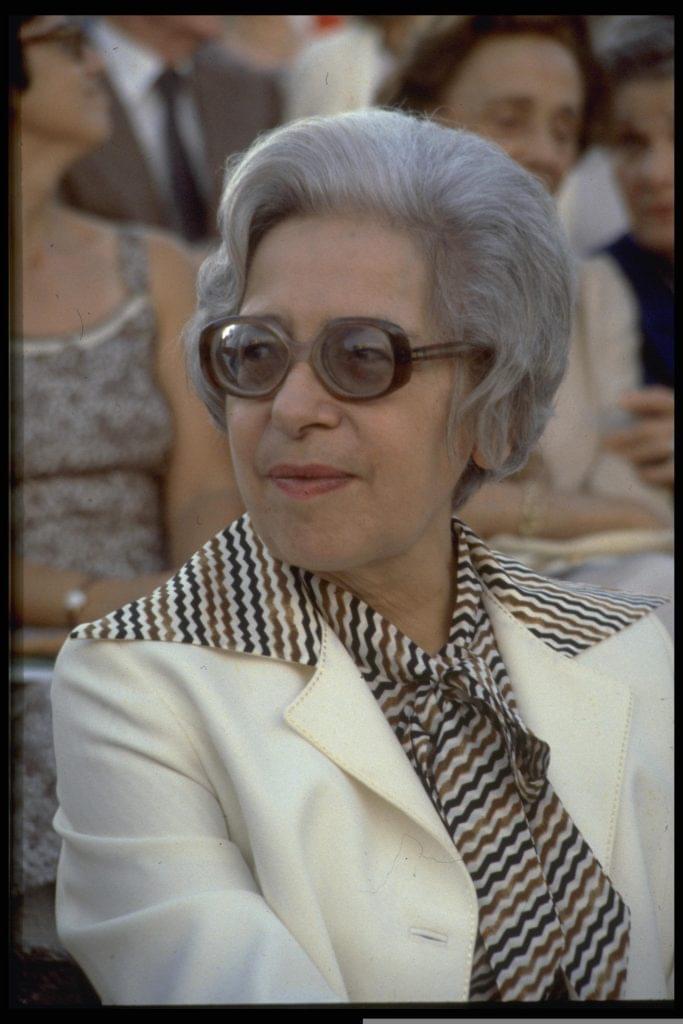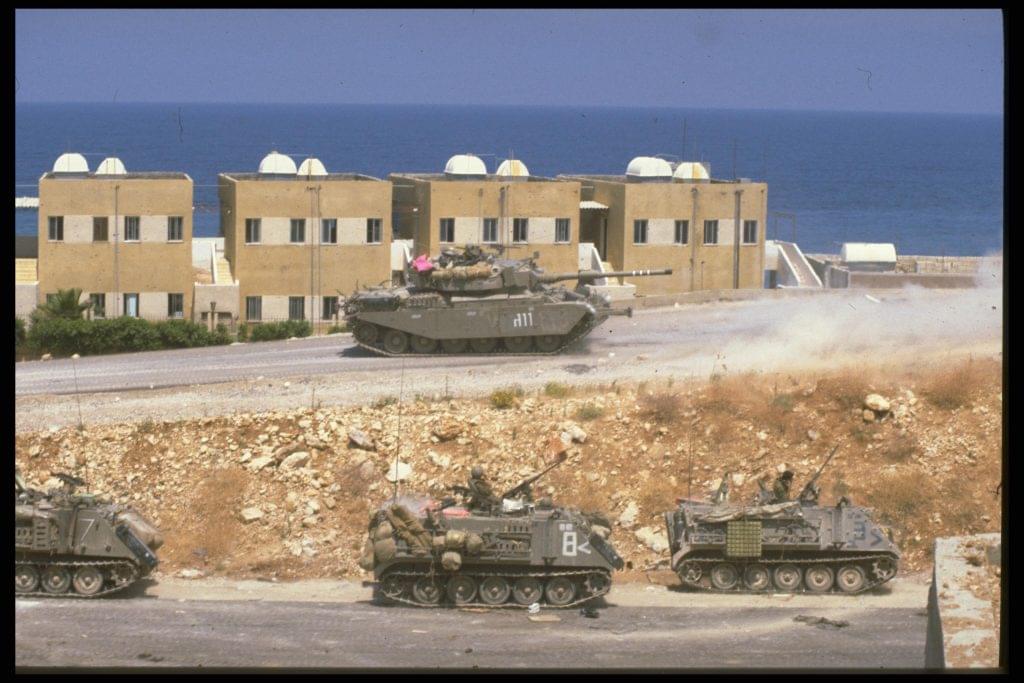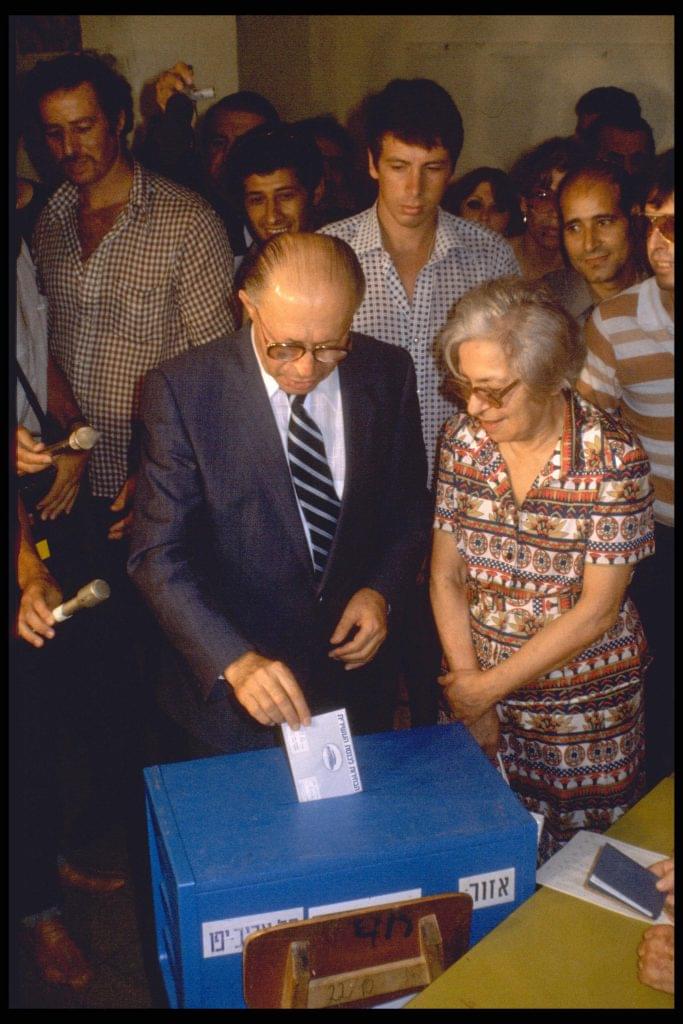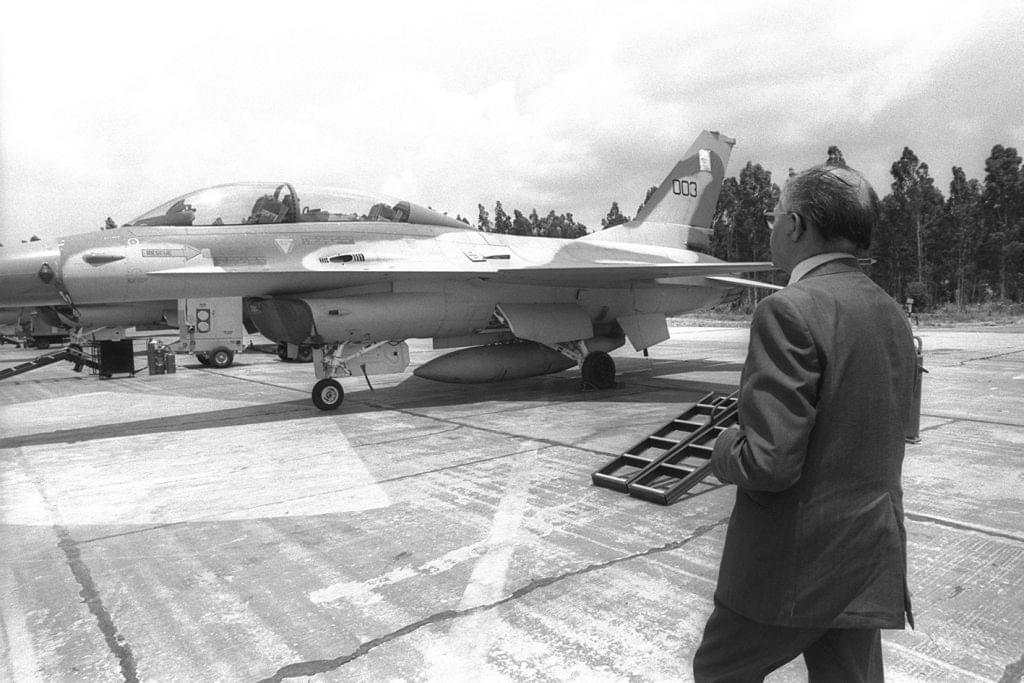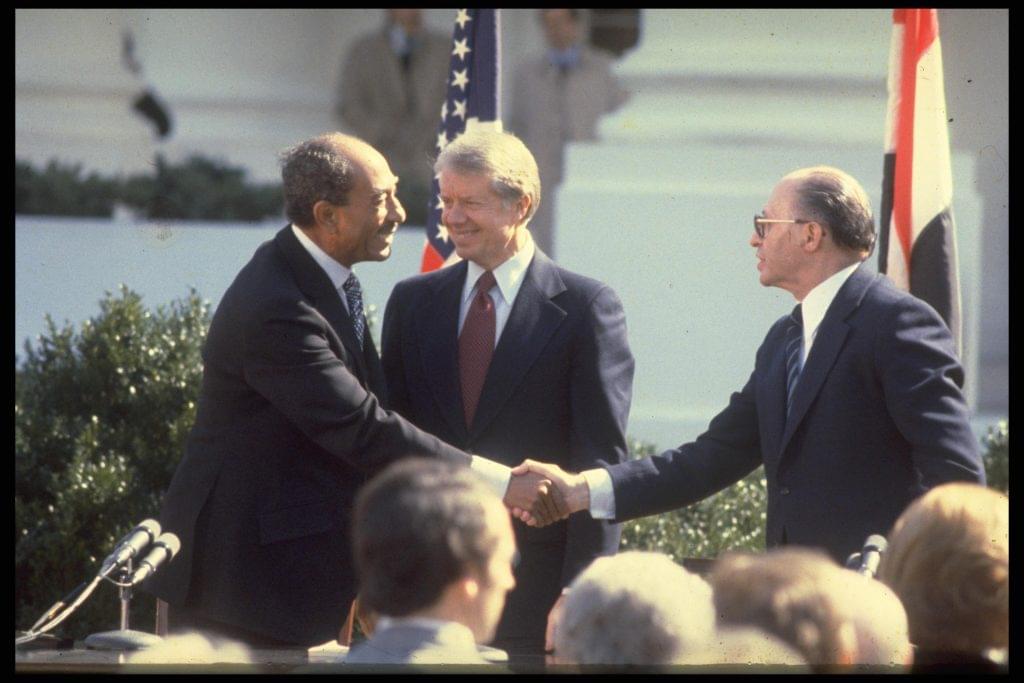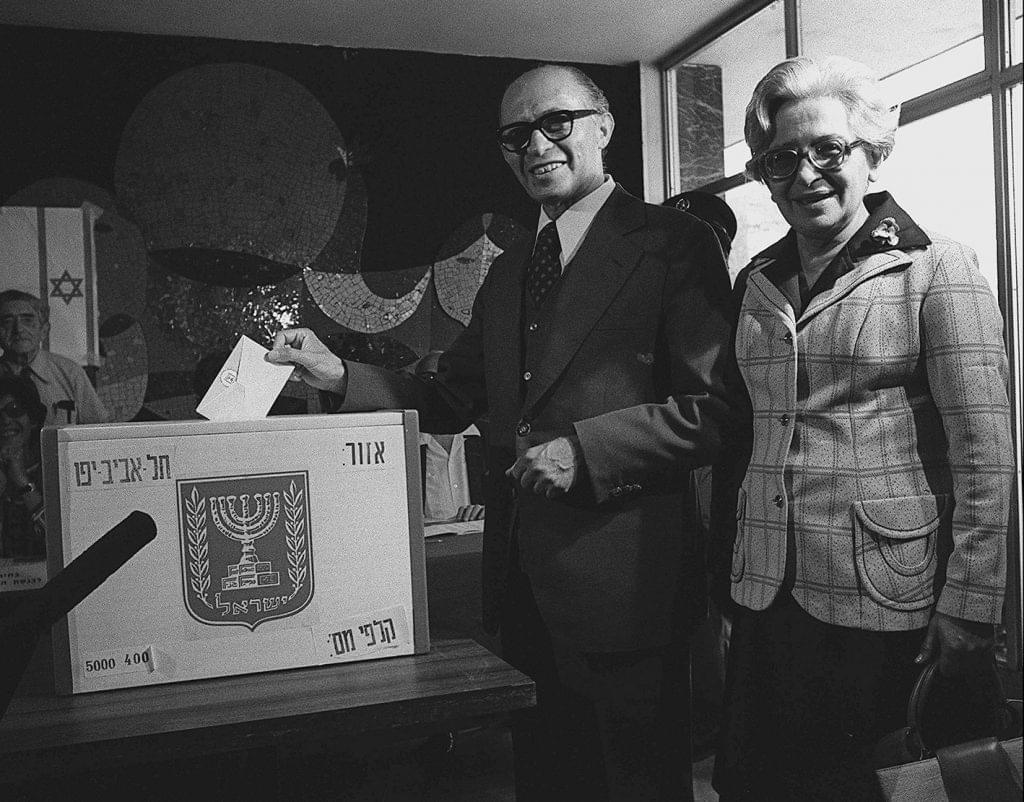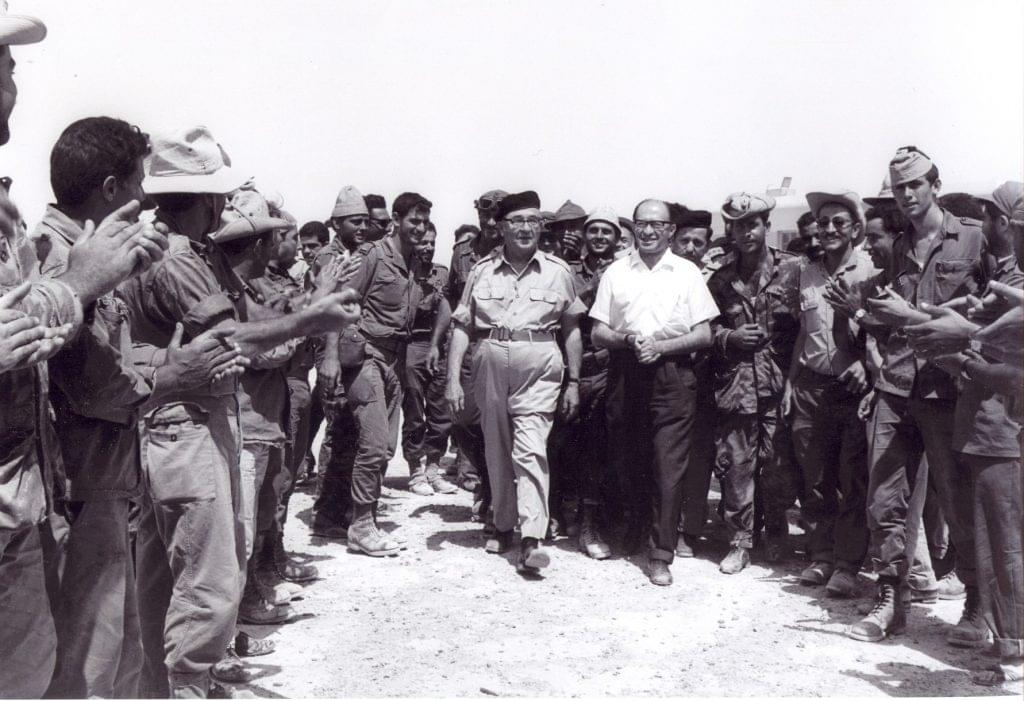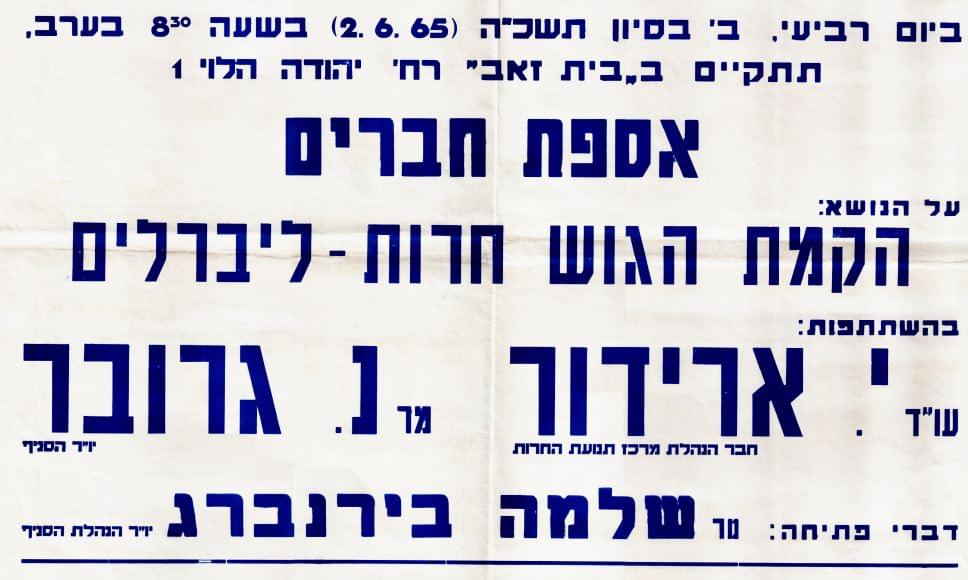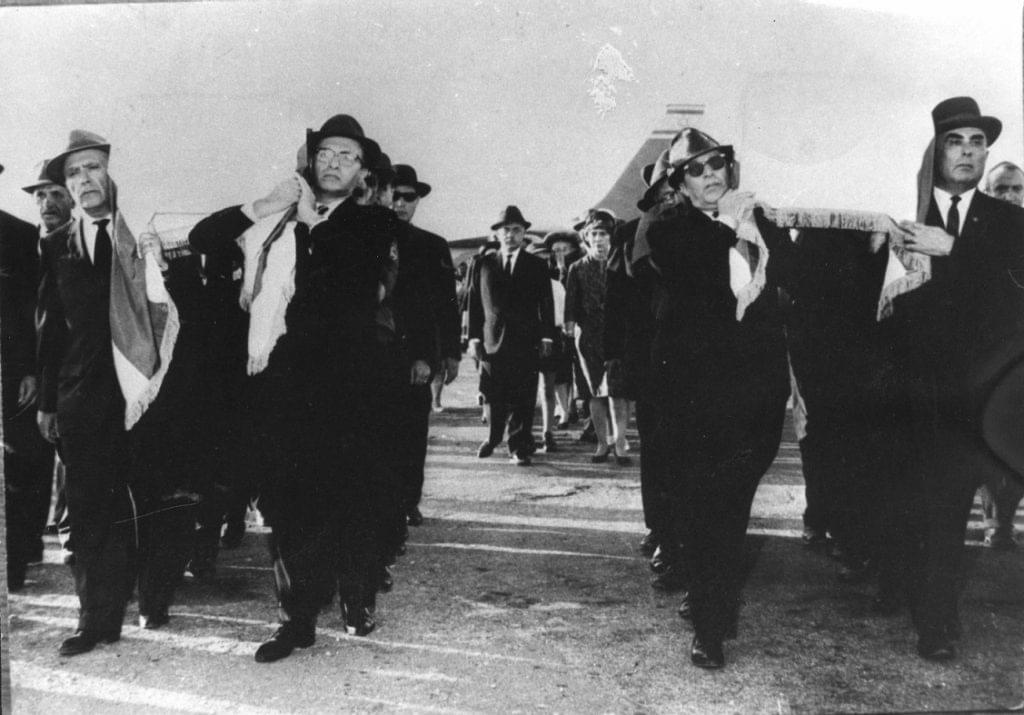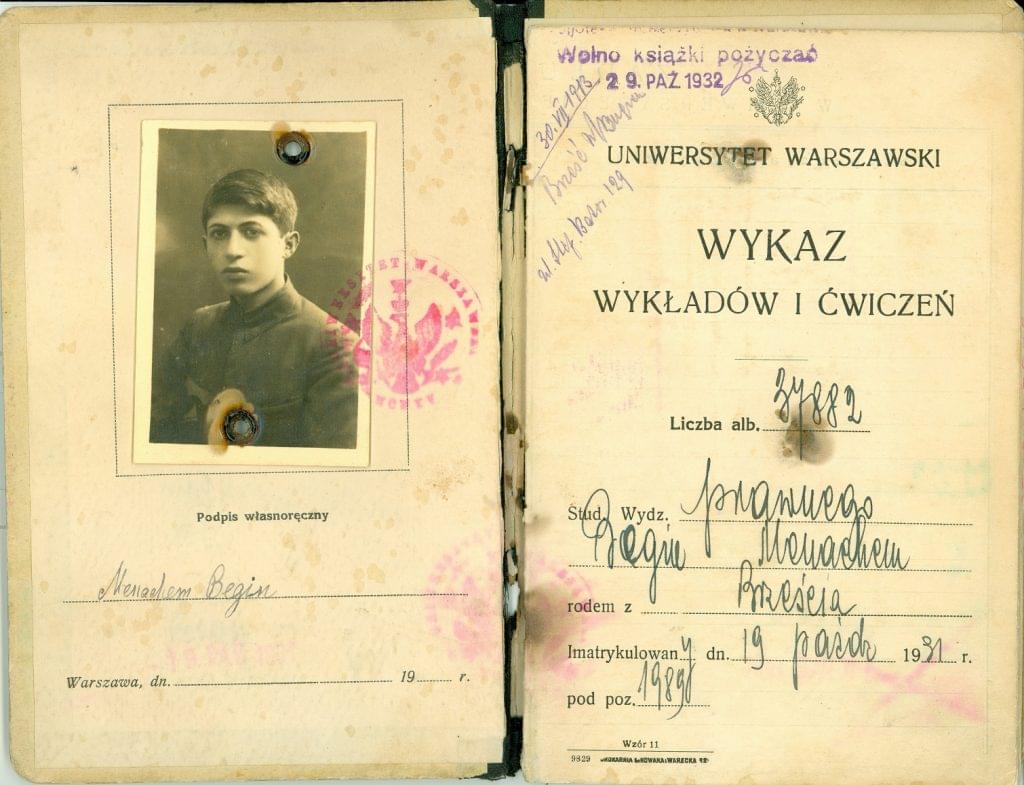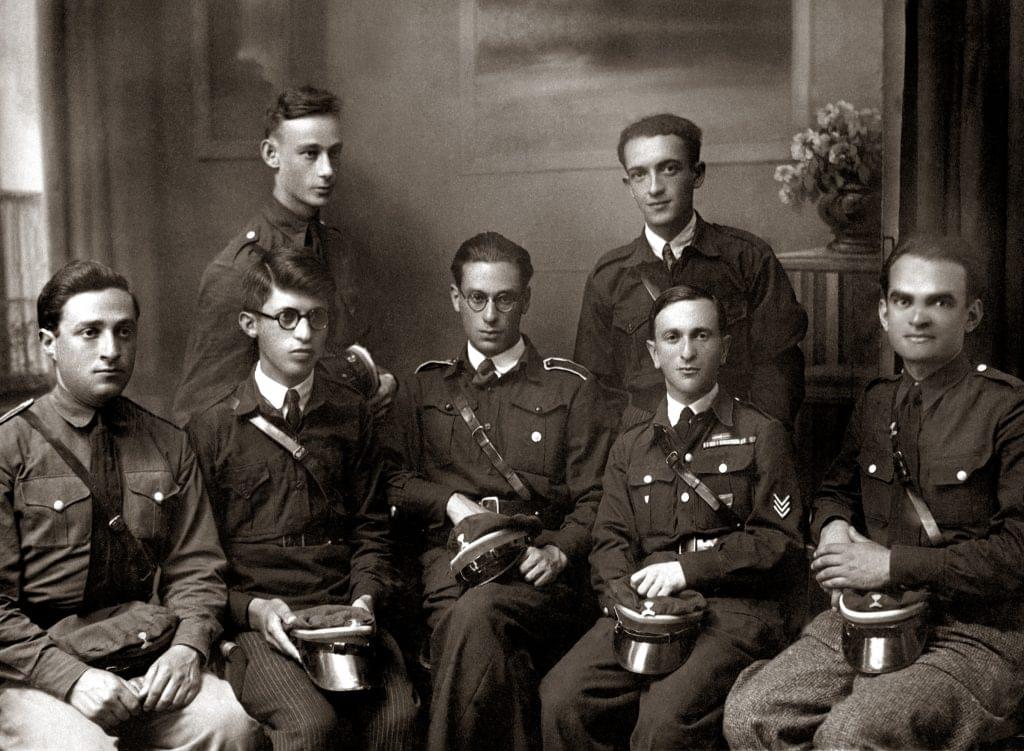For about a year and a half Begin served in the Polish army unit stationed Israel. His friends wanted to appoint him commander of the Etzel, the National Military Organization, but Begin refused to defect from the army that had drafted him. However, he did take an active part in the movement, gave speeches before members and wrote several articles under a pseudonym. After he obtained an official vacation from the Polish army, Begin accepted the appointment as Commander of the Irgun. Over four years he lead the underground organization, and throughout that period was pursued by the British police and by the Jewish leadership of the Yishuv. Persistent threats forced the Begin Family to move between hiding places, and forced Begin to take on false identities, such as ‘Rabbi Israel Sassover’ and ‘Yonah Konigshofer’.
On February 1, 1944, Begin issued a declaration of uprising on behalf of the Irgun, against the British rule in Israel, demanding it hand over its power immediately to a temporary Hebrew Government. Two weeks after the announcement, Irgun fighters detonated a bomb at the British immigration departments in Jerusalem, Haifa and Tel Aviv, and two more weeks later blew up the income tax offices those three cities. A month later they attacked the National British Headquarters and the secret police headquarters in Jerusalem, destroyed the secret police headquarters in Jaffa and blew up the secret police headquarters in Haifa.
The heads of the Jewish community in Israel feared that the actions of the Irgun would undermine relations with the British authorities, and turned to Begin demanding to stop them. They claimed that it undermines the Zionist Effort and goes against the authority of national institutions, and stated that if the operations persist, they will not hesitate to physically harm members of the Irgun. Begin rejected the threats, but the organized community leaders were determined to thwart the actions of the Irgun. In October 1944, the Jewish Agency sent the Haganah on a mission to take violent action against the “extremist organizations”. For six months, which became known as the period of “Sazon”, the Irgun suffered kidnappings, arrests, leaks, physical threats, beatings and torture, aimed to paralyze their activities. The Yeshuv leadership even turned in names of hundreds of Irgun members to the British; most of them were arrested and many were exiled and placed in quarantine camps in Africa. Despite a growing sense of grievance, Begin forbade his men to respond.
Britain continued its anti-Zionist policies even after the end of World War II. Therefore, a new framework of coordination between the underground groups was established, for the sake of a joint military struggle against the British Mandate. The united “Hebrew Resistance” carried out many military operations throughout the country such as “The Night of the Bridges” and “The Night of Trains”. The best known attack is the attack on the main headquarters of the British army and government secretariat offices, housed in the southern wing of the King David Hotel in Jerusalem. The Irgun, who were ordered to carry out the attack, sent telephone messages to British forces calling on them to exacuate the hotel in order to prevent loss of life. The British officials didn’t heed the warnings, and 91 people died in the explosion. The severe and unpredictable results lead the Yeshuv institutions to dismantle of the resistance movement and avoid further military action against the British government.
The year 5707 (1946-1947) was a record year for actions by the Irgun. In May, the Irgun broke many operatives out of Acre prison, but during the operation, which gained world media attention, three fighters were caught – Jacob Weiss, Avshalom Haviv and Meir Nakar – and the British condemned them to death by hanging. In response, the Irgun abducted two British soldiers, and threatened that British gallows would be met with Hebrew gallows. The government did not heed the threats by the underground; on July 29, the fighters were brought to the gallows, and Menachem Begin ordered to do the same with the British law officers. The sergeants were hanged, and their bodies were transferred to a grove near Netanya. This caused widespread shock in Britain, and led the mandate government to stop the Hanging Policy, and the British began to realize that they can no longer govern Palestine.
In order to stop the bloody attacks from Jaffa on the Tel Aviv neighborhoods, some 600 Irgun members gathered on April 25, 1948 for battle instructions, where they first met their commander, Menachem Begin. “We are going to capture Jaffa”, he cried. “We are to have mercy on women and children. He who raised his hand in surrender, saved his own life. He is a prisoner is in your hands – do not hurt him.” After more than two days, the Menashiya neighborhood was conquered by the Irgun. The victory led to the flight of Arab residents and the intervention of British troops.
